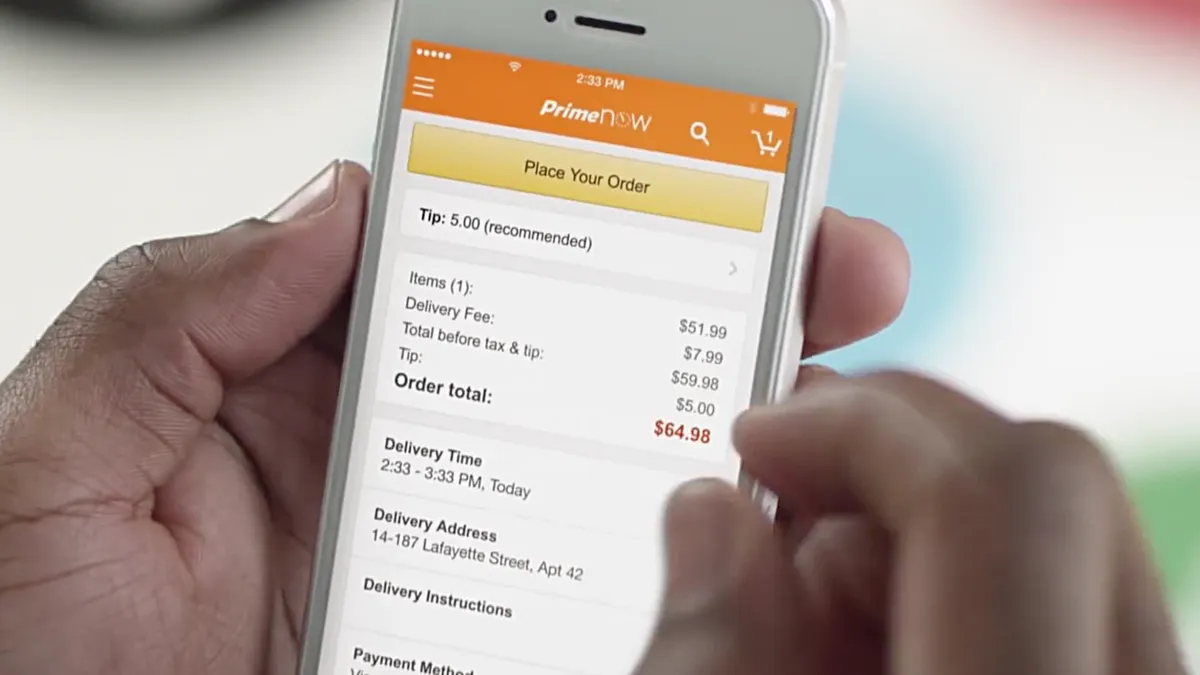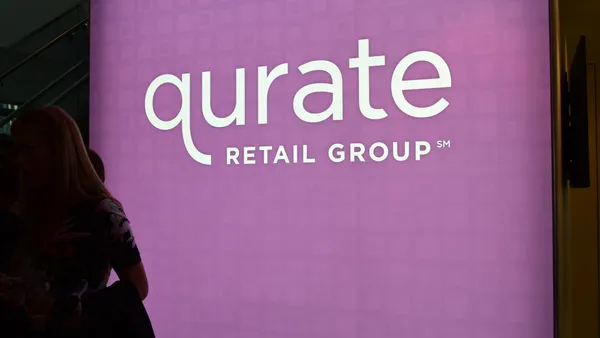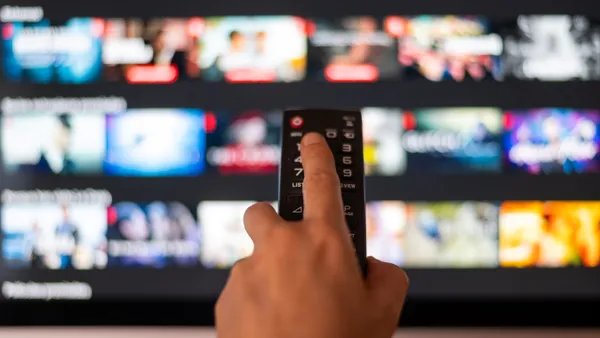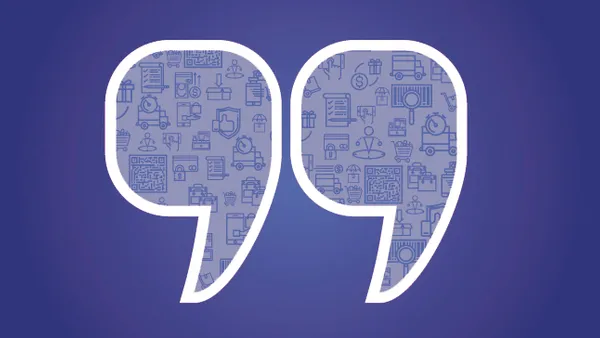Dive Brief:
- Amazon announced it has added beer and wine delivery through its Prime Now service to the Cincinnati and Columbus markets, according to a company release.
- The company will deliver hundreds of different labels, including Veuve Clicquot, MadTree Brewing and Bud Light, to Prime customers within two hours free of shipping charge, and within a one-hour window for $7.99.
- “We are excited to continue expanding our product offerings and we know customers will love getting wine and beer delivered right to their door in one hour or less,” said Stephenie Landry, vice president of Prime Now worldwide.
Dive Insight:
Amazon, which began testing alcohol delivery in Seattle two years ago, is expanding its footprint in what’s become a crowded alcohol delivery market, which Ibisworld estimates will reach $1.4 billion by 2020. Current competitors include Drizly, Minibar and Thirstie, which partner with local stores and distributors to offer delivery in cities like Boston, New York and Washington, D.C., as well as the many grocery stores that now offer online ordering.
The world’s largest e-tailer has some key advantages here, most notably its free two-hour delivery. Against alcohol-only competitors like Drizly and Minibar, Amazon can also leverage the thousands of additional goods it carries. Prime members can easily tack on a six-pack or a bottle of wine onto a grocery order. If they’re stocking up for a party, they can buy all the booze and the food they need in one place.
Drizly, which operates in 28 cities and is Amazon’s largest competitor in this space, offers delivery for $5 in most locations, often within the hour. That beats Amazon’s $7.99 fee for within-the-hour delivery, but it’s hard to imagine that the demand for one-hour versus two-hour alcohol delivery will be strong enough for Drizly to capitalize on a three-dollar advantage.
As the service expands to other cities, as it most certainly will, Amazon’s alcohol delivery could be a way to draw new customers to Prime. Its main value, though, is that it’s yet another enticement for existing members to use Prime for grocery shopping.
Regulatory hurdles may throw up some roadblocks, with alcohol delivery laws varying by state. But Amazon’s ability to partner with local retailers as a distributor could circumvent those.
The biggest challenges Amazon will likely face in its alcohol expansion are supermarkets, who still enjoy considerable shopper loyalty and can offer targeted promotions on beer, wine and spirits. More retailers, too, are offering growler pours, sampling events, in-store bars and other extras that play up the experience of drinking. Beer and wine lovers, especially, relish the chance to try new varieties. Lucky’s Market offers draught beer for customers to sip while they shop, while Raley’s Nob Hill Foods stores have branded bars in stores. Jungle Jim’s International Market has a tasting bar in its beer and wine department. These are advantages retailers can leverage that online-only sellers can’t match.














